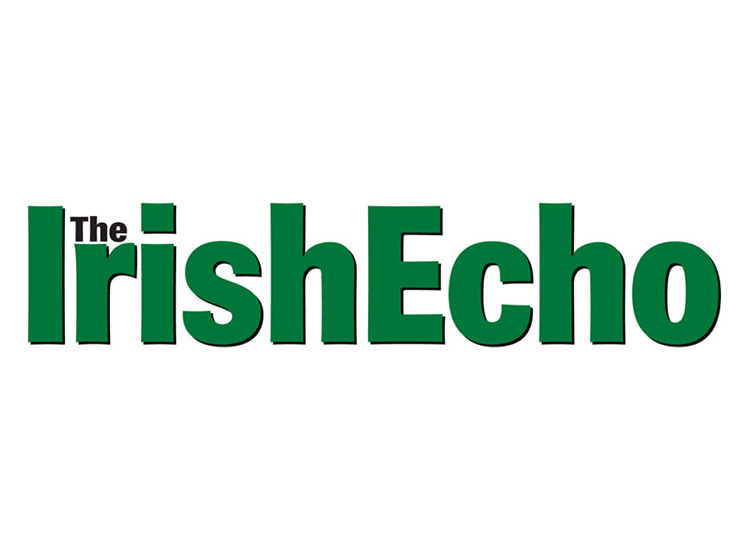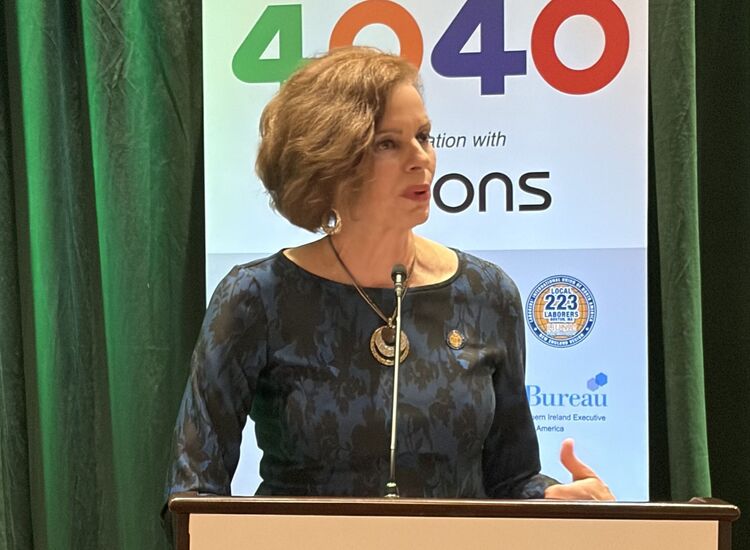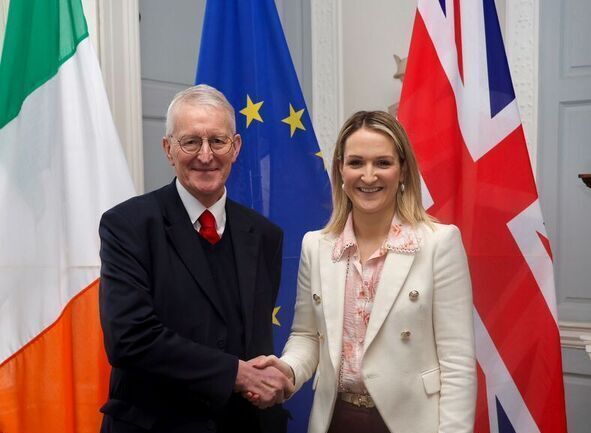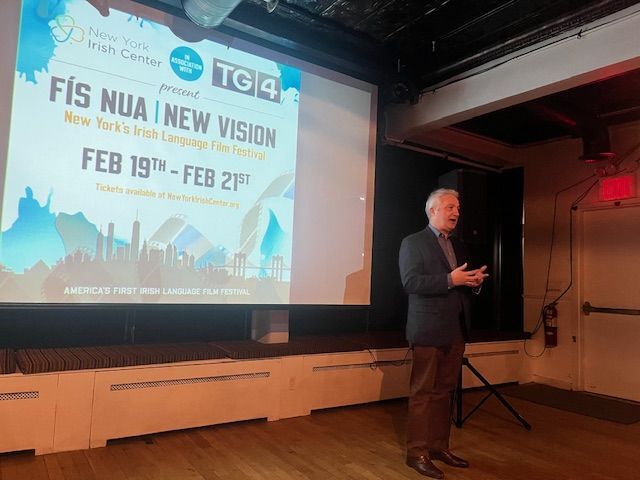By Peter McDermott
J1 visa-holder Pádraig Schäler was knocked off of his bike on Cape Cod on June 27 last. He had almost reached his destination, the Bramble Inn, where he was working for the summer. It was a Thursday morning, at 10. The Irish-language enthusiast from Glasnevin in Dublin has been in a coma since that day.
This weekend, members of his Class of 2013 at Trinity College Dublin and other friends will raise money to support his parents by swimming off all 17 Irish counties that have a seacoast.
While Schäler is being treated in his father’s native Germany, his story has been hitting the headlines and airwaves back home for two reasons. First, it has revealed serious inadequacies in the health system for the treatment of neuro-rehab patients and, second, the company that had sold him his €6.5 million travel insurance policy refused to cover the $100,000 in medical expenses incurred at Cape Cod Hospital in Hyannis.
The family first heard about the accident when Pádraig Schäler’s older sister Laura, who was studying medicine in Berlin, spotted a post on Facebook. It was apparently from the wife of the Bramble Inn’s owner. Laura called her mother, Pat O’Byrne, who thought it was likely a prank. When O’Byrne dialed the number given, a police officer answered.
Reinhard Schäler was on a work assignment in Sanya in the South of China. It was 1 a.m. there when his wife contacted him with the news.
“By 8 a.m. I was seated in a plane on my way to Boston and Cape Cod, where I arrived about 36 hours later,” he recalled to the Echo. “Pat had arrived a few hours before me.
“Going into the ICU and seeing Pádraig was the most painful thing that ever happened to me. To us. We virtually did not eat and drink, nor did we really sleep, for weeks,” Schäler said.
He said on Joe Duffy’s “Liveline” on RTÉ Radio two weeks ago that he felt “uncomfortable” at Cape Cod Hospital.
“In the U.S., medical personnel talked to us a number of times about possible organ donation,” Schäler told the Echo. “There was great doubt about Pádraig's chances of a meaningful recovery. Being in an environment we were not familiar with, dealing with a system we did not know, we felt Pádraig and, we ourselves, would be in a better position back in Ireland, with more support from our families and friends, including Pádraig's friends.”
Ambiguous wording
While in Massachusetts, the Schälers were also grappling via phone with the insurance company and various subsidiaries and parent companies. Pádraig Schäler had been hit by a truck traveling at speed. He was not wearing a cycle helmet, and was not legally required to, though that’s the reason the insurance company has given for not covering the medical expenses. The Schälers have been told that a helmet would make little or no difference with the sort of blow that injured Pádraig, And they’ve argued that the requirement for one in the policy was, at best, ambiguously worded.
In recent weeks, several people have come forward to Duffy’s show and other media outlets in Ireland to say that they, too, had been refused coverage due to various qualifications or stipulations in the “small print” of their holiday insurance policy.
“Following our campaign and awareness-raising in the media, the insurance company announced, as quoted by the [Dublin] Evening Herald,” Reinhard Schäler said, “that the policy that had been sold to Pádraig was ambiguous and that in the revised version to come into effect this year, cycling without a helmet will be covered as long as it is not done for touring or as a sport - which is what it always should have been.”
Last summer, after negotiations over the phone, the insurance company offered to cover repatriation costs “ex gratia.”
Schäler recalled in his blog (http://hospi-tales.com) helping to maneuver his 6-foot-7 son onto the air ambulance last July 15 and “his mother carrying the bone plate from his skull [it had been removed to release the pressure from the swelling on the brain] in a large Styrofoam container on dry ice on her knees because there was no other space on the plane.”
Their son then spent three and a half months in a high-dependency ward in Dublin’s Beaumont Hospital. At the beginning, he was put on the waiting list for the National Rehabilitation Hospital in Dún Laoghaire. The wait would be four months, family members were told, and that was eventually revised to nine months.
German and British consultants the Schälers contacted said that an acute hospital such as Beaumont was the wrong place for Pádraig and also stressed that he needed intensive neuro-rehab immediately. The family then determined that Reinhard Schäler’s citizenship of Germany made health care a viable option in that country if he relocated with his son.
Tiny steps
Schäler had settled down in Dublin in 1986 with the Irishwoman he fell in love with in Spain some years before, when they were students together on Spanish government scholarships.
It was an easy enough transition: he’d been enthusiastic about things Irish, particularly music, since his school days.
“I went to concerts by Clannad in my home town of Dortmund in the mid-‘70s,” he remembered, “when they had driven over to Germany in their VW minibus.”
Schäler and O’Byrne were intent on academic careers, but he found there were no jobs in Ireland for a German teaching the Spanish language or Latin American history. So he retrained in computer programming at a time when the localization industry was emerging as one of Ireland's largest IT-related sectors. He later established the Localization Research Centre, a postgraduate degree program in localization at the University of Limerick.
Now, Schäler is in Hamburg at his son’s bedside, recording in his blog that he is “getting better, very slowly, and in very tiny steps.”
He said the German medical personnel are “amazed” at the support the patient is getting from family and friends visiting from Ireland. Of the latter group, Schäler said, “These energetic, positive, compassionate, kind, caring young people really give you hope for the future.”
Oisín Mistéil, who went to secondary school, Coláiste Eoin, and university with Pádraig Schäler can offer an explanation for the support that his friend is receiving: “I’ve never known anyone who is as immediately taken the heart of every person he met.”
He added: “Pádraig is my moral compass and also an exceptional judge of character. Pádraig is a leader, by deed more than by words.”
Another friend, Andrew Mac an Rí, said: “I am helping Pádraig because he has always helped me.
“Pádraig is the kind of person who just fills a room with his presence. A very enthusiastic person, open and thoughtful,” he said.
Mac an Rí said his friend has forged many relationships through his love of the Irish language. Mistéil, meanwhile, spoke of his love of travel. They worked together in San Diego in the summer of 2012 on J1 visas. Schäler went to Mexico for six weeks on his own in the summer of 2011, he added, and previously attended the University of Kentucky on a swimming scholarship.
“Pádraig is also very stubborn and he has never been a man to roll over,” Mistéil said. “Quite the opposite.”
His father has noted “clear and more and more consistent reactions to requests to squeeze our hands, move his tongue, move his feet.
“Recently, we and the music therapist observed what appeared like Pádraig was 'swinging' his head and his hands with the music being played for him.”
Reinhard Schäler said: “Doctors tell us that there is an incredible potential in young and fit and bright people like Pádraig to recover much of what they lost in such an accident. We just have to be very patient and do what we can to help and support his recovery.”
For more information about how you can help go to: http://caringforpadraig.org.









